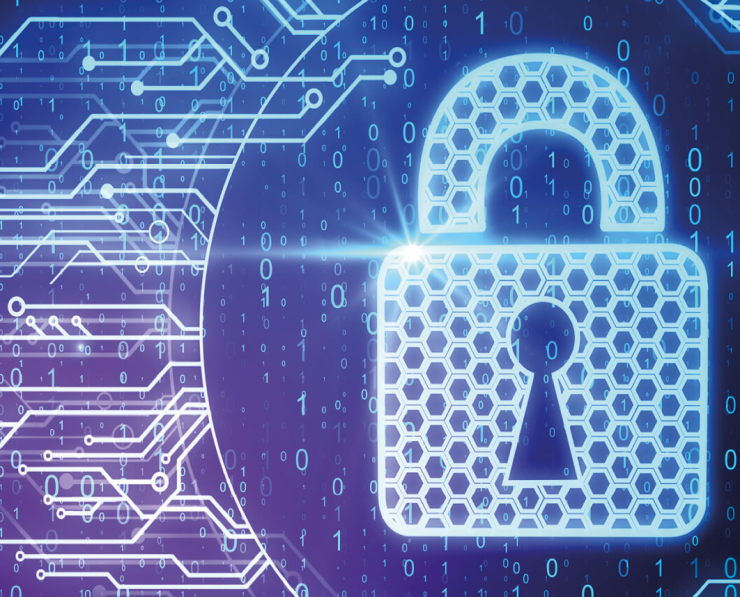Student Feedback
NSE5_FAZ-7.2: NSE 5 - FortiAnalyzer 7.2 Analyst Certification Video Training Course Outline
Introduction to FortiAnalyzer
EVE-NG Lab Setup
FortiAnalyzer Walk-Through
FortiAnalyzer Admin Accounts
Admiistrative Domain
Device Registration
FortiAnalyzer Backup & Restore
FortiAnalyzer Backup & restore
Reports
System Setting
Introduction to FortiAnalyzer
NSE5_FAZ-7.2: NSE 5 - FortiAnalyzer 7.2 Analyst Certification Video Training Course Info
NSE5_FAZ-7.2 FortiAnalyzer 7.2 Certification Training: Secure, Analyze & Optimize Networks
Comprehensive Lab Workbook to Learn Fortinet NSE5_FAZ-7.2 FortiAnalyzer 7.2 Step by Step
What you will learn from this course
• Introduction and theoretical concepts of FortiAnalyzer
• Administrator accounts and role-based access management
• Understanding Administrative Domains (ADOMs) and their usage
• Various methods of registering devices into FortiAnalyzer
• Firmware upgrades for FortiAnalyzer
• Backup, restore, and migration processes
• Navigating the CLI and running basic commands
• Configuring FortiAnalyzer and generating logs
• Using FortiView and FortiView Monitor effectively
• Hands-on practice with Log View and Log Browse Labs
• Creating and managing FortiSoC automation playbooks
• Understanding FortiSoC event monitoring requirements
• Building foundational skills from FortiGate firewalls training
• Practicing labs with simulation tools like EVE-NG
• Preparing for the NSE5_FAZ-7.2 FortiAnalyzer 7.2 certification exam
Learning Objectives
The main objective of this course is to provide learners with a complete understanding of Fortinet FortiAnalyzer v7.2 and its role in centralized security log management, reporting, and analytics. Learners will build skills that allow them to configure, manage, and troubleshoot FortiAnalyzer effectively in enterprise environments. By completing this training, participants will be able to:
• Demonstrate practical knowledge of installing and managing FortiAnalyzer
• Configure administrator accounts with role-based access
• Register devices through multiple supported methods
• Perform system upgrades, backups, restores, and migration tasks
• Use FortiAnalyzer CLI commands to manage configurations
• Configure and monitor log collection from FortiGate devices
• Generate detailed security reports using FortiView and log browsing tools
• Implement FortiSoC automation playbooks for advanced incident response
• Prepare for the Fortinet NSE5_FAZ-7.2 FortiAnalyzer v7.2 certification exam
• Apply real-world skills for security monitoring and compliance reporting
Target Audience
This course is designed for IT professionals and security specialists who want to enhance their ability to manage and analyze network security logs using FortiAnalyzer. The course is suitable for:
• Network engineers responsible for monitoring and troubleshooting security devices
• Cybersecurity engineers working with centralized log management systems
• Security analysts focusing on real-time incident response and monitoring
• System administrators tasked with reporting and compliance in Fortinet environments
• IT managers who want to streamline centralized visibility and reporting across networks
• Professionals preparing for the Fortinet NSE5_FAZ-7.2 FortiAnalyzer v7.2 certification exam
Requirements
To achieve the best results in this course, learners should meet certain technical requirements. A system with sufficient performance is necessary for hands-on labs and simulations. The following resources are recommended:
• A personal computer with at least 12GB of RAM, with 16GB preferred for smoother lab performance
• Access to simulation software such as EVE-NG for practicing FortiAnalyzer configurations
• FortiAnalyzer software version 7.2.x and FortiOS 7.x for compatibility with course content
• Stable internet connection to access learning material, labs, and updates
Prerequisites
Before starting this course, participants should already have foundational knowledge of Fortinet products and networking concepts. The following prerequisites are recommended:
• Completion of FortiGate firewall training, preferably at the NSE4 level
• Three to five years of hands-on experience with Fortinet network security solutions
• Understanding of firewall operations and concepts in IPv4 environments
• Basic knowledge of network management systems and monitoring tools
• Familiarity with topics from FortiGate Security and Infrastructure courses
• Experience working in enterprise or service provider security environments
Description
FortiAnalyzer is Fortinet’s advanced security management and analytics platform designed to provide centralized log collection, storage, and analysis. It enables organizations to gain complete visibility into their network infrastructure by consolidating logs from multiple FortiGate devices and other Fortinet security appliances. With FortiAnalyzer, security teams can generate detailed reports, track traffic behavior, identify threats, and ensure compliance with industry regulations.
The purpose of this training is to guide learners through the installation, configuration, and administration of FortiAnalyzer, ensuring that they understand how to implement it in real-world scenarios. Through practical lab sessions, participants will be able to simulate security incidents, explore the monitoring tools available within FortiAnalyzer, and learn how to automate incident responses using FortiSoC features.
Importance of Centralized Log Management
In today’s security landscape, organizations face increasing challenges in detecting, analyzing, and responding to cyber threats. Network devices generate large amounts of data every second, making it difficult to monitor security without a centralized platform. FortiAnalyzer addresses this challenge by aggregating logs from multiple devices and providing actionable insights through advanced analytics and visualization.
By centralizing logs, FortiAnalyzer allows security analysts to detect unusual patterns, identify malicious activity, and take proactive measures to mitigate risks. Its reporting capabilities are also essential for compliance with security standards, making it a valuable tool for organizations that need to meet regulatory requirements.
Role of ADOMs in FortiAnalyzer
One of the key features covered in this course is Administrative Domains (ADOMs). ADOMs allow administrators to logically divide the FortiAnalyzer into multiple domains, enabling separation of logs and reports based on business units, geographical regions, or departments. This segmentation ensures better organization, security, and management of data within large organizations.
ADOMs are especially useful for managed service providers (MSPs) or enterprises with multiple independent security teams. Through hands-on labs, learners will configure and manage ADOMs to simulate real-world scenarios where multiple clients or departments need separate security monitoring environments.
Administrator Accounts and Role Management
Proper access control is critical in managing a centralized log management system. FortiAnalyzer allows for the creation of multiple administrator accounts with different levels of access. By assigning roles and permissions, organizations can ensure that users have only the access required for their job responsibilities.
During the training, learners will configure administrator accounts, assign roles, and implement role-based access control policies. This not only enhances security but also helps maintain accountability in multi-user environments.
Preparing for Hands-On Labs
To reinforce the theoretical knowledge, the course includes practical lab exercises using EVE-NG and FortiAnalyzer v7.2. These labs simulate real-world use cases such as device registration, firmware upgrades, log monitoring, and report generation. Learners will also practice using the CLI, which provides deeper control over FortiAnalyzer configurations.
By combining theory with practice, this training ensures that participants are not only able to pass the certification exam but also gain the confidence to implement FortiAnalyzer effectively in professional environments.
Course Modules / Sections
This course is designed to provide structured, step-by-step learning for Fortinet NSE5_FAZ-7.2 FortiAnalyzer v7.2. It is divided into logical modules that progress from foundational topics to advanced use cases, ensuring learners can gradually build knowledge and apply it in practical scenarios.
The modules are structured as follows:
• Introduction and Theory of FortiAnalyzer
• Administrator Accounts and Access Management
• Understanding and Configuring Administrative Domains (ADOMs)
• Device Registration Methods and Lab Practice
• Upgrading and Maintaining FortiAnalyzer Firmware
• Backup, Restore, and Migration Processes
• Using the Command-Line Interface and Essential Commands
• Configuration for Centralized Log Collection
• Generating and Analyzing Logs from FortiGate Devices
• Working with FortiView and FortiView Monitor
• Lab Sessions with Log View and Log Browse
• FortiSoC Features and Automation Playbooks
• Event Monitoring and FortiSoC Requirements
• Best Practices for Security Monitoring and Incident Response
• Exam Preparation for NSE5_FAZ-7.2 FortiAnalyzer v7.2 Certification
Each module builds upon the previous one, combining theory and labs to ensure a strong balance of conceptual understanding and practical application.
Key Topics Covered
The course covers a wide range of subjects within the FortiAnalyzer ecosystem. These topics are carefully selected to align with real-world tasks that network security analysts and engineers perform in their day-to-day roles.
Introduction to FortiAnalyzer
The training begins with an overview of FortiAnalyzer, its purpose in centralized log management, and its role within the Fortinet Security Fabric. Learners will study its architecture, deployment options, and integration with FortiGate devices. Theoretical understanding ensures that participants grasp why centralized log analysis is critical for modern enterprises.
Administrator Accounts
Proper account management is essential for secure operations. This topic teaches learners how to create and configure administrator accounts, implement role-based access control, and manage permissions to ensure security and accountability.
Administrative Domains (ADOMs)
ADOMs are explained in depth, focusing on how they enable segmentation of log data and reporting. Learners practice setting up ADOMs to manage different departments, business units, or customers, ensuring that logs remain properly separated and organized.
Device Registration
Multiple methods for registering devices into FortiAnalyzer are demonstrated, including manual registration, automatic registration, and script-based approaches. Learners gain experience connecting FortiGate devices and verifying successful integration.
Firmware Upgrades
Keeping FortiAnalyzer updated is vital for performance and security. This section covers step-by-step firmware upgrades, compatibility checks, and rollback procedures. Learners understand best practices to ensure smooth upgrades without data loss.
Backup, Restore, and Migration
Disaster recovery is covered through backup and restore processes. Migration techniques are also included, ensuring that learners can move configurations and logs between systems when necessary.
CLI Usage
The command-line interface is introduced as a powerful way to control FortiAnalyzer. Learners practice using basic commands for configuration, troubleshooting, and log queries. CLI use builds confidence in handling advanced scenarios beyond the GUI.
Log Collection and Configuration
This section focuses on setting up FortiAnalyzer to collect logs from FortiGate devices. Learners configure logging settings, verify log flows, and troubleshoot connectivity issues to ensure data is centralized correctly.
FortiView and Monitoring
Learners explore FortiView, an interactive tool for visualizing traffic, threats, and user activity. Hands-on exercises include using FortiView Monitor for real-time visibility into the network.
Log View and Browsing
Participants use Log View to search, filter, and analyze historical logs. Practical labs help them develop skills in investigating incidents and identifying patterns from collected logs.
FortiSoC and Automation
Learners are introduced to FortiSoC features for security operations, including automation playbooks. They practice building simple playbooks that automate responses to security events, improving response times.
Event Monitoring
Requirements for FortiSoC event monitoring are explained, focusing on how to detect and respond to incidents in real time. Learners understand how FortiAnalyzer supports Security Operations Center (SOC) workflows.
Best Practices and Reporting
The course also covers strategies for compliance reporting, performance optimization, and securing FortiAnalyzer itself. Learners gain insight into industry practices that ensure reliability and effectiveness.
Certification Preparation
The final topic is focused on preparing learners for the NSE5_FAZ-7.2 FortiAnalyzer v7.2 exam, with coverage of exam objectives, practice labs, and study strategies.
Teaching Methodology
This course uses a blended teaching approach to ensure learners not only understand theoretical concepts but also apply them in hands-on environments. The methodology includes lectures, demonstrations, guided labs, and real-world use cases.
Instructor-Led Explanations
Each concept begins with a clear explanation of its purpose and importance. Learners are guided through architectural diagrams, workflows, and scenarios to understand how FortiAnalyzer fits within a larger network.
Demonstrations
After the theoretical explanation, the instructor demonstrates the process using a live FortiAnalyzer system. This includes logging in, navigating the GUI, and performing tasks such as creating accounts or configuring ADOMs. Demonstrations provide learners with a clear reference before they perform tasks themselves.
Guided Lab Exercises
Hands-on practice is central to the course. Each learner works on a simulated environment, such as EVE-NG or a virtualized lab setup, to perform tasks independently. Exercises include step-by-step instructions to help participants build confidence.
Scenario-Based Learning
Realistic scenarios are used to teach each application of concepts. For example, learners may simulate a log collection issue, investigate it, and resolve the problem using tools within FortiAnalyzer. Another scenario might involve setting up ADOMs for multiple departments and ensuring proper separation of logs.
Incremental Complexity
The labs progress from simple to complex, ensuring that learners are not overwhelmed. Initial tasks involve basic setup and navigation, while later labs focus on advanced features like automation playbooks and event monitoring.
Self-Assessment and Reflection
Learners are encouraged to review their work after each lab, checking results against expected outcomes. Reflection helps reinforce learning and identify areas that need further practice.
Exam-Oriented Approach
The methodology also incorporates preparation for the NSE5_FAZ-7.2 FortiAnalyzer v7.2 exam. Learners are introduced to sample scenarios and practice questions aligned with the certification objectives.
Assessment & Evaluation
Assessment is designed to measure both theoretical knowledge and practical ability. Learners are evaluated continuously through lab performance, exercises, and final review tasks.
Knowledge Checks
After key sections, learners complete knowledge checks consisting of short written tasks or interactive activities. These ensure that the foundational concepts are well understood before moving on.
Lab Performance
Since this course emphasizes hands-on skills, a significant part of the assessment is based on lab performance. Learners must demonstrate the ability to configure FortiAnalyzer, troubleshoot log collection, generate reports, and set up automation playbooks.
Practical Scenarios
Evaluation includes scenario-based challenges where learners solve real-world problems. For example, identifying why a device is not registering, troubleshooting missing logs, or building a compliance report for management. These scenarios measure readiness for real job roles.
Continuous Feedback
Throughout the course, learners receive feedback on their progress. This includes guidance on lab exercises, corrections where needed, and improvement tips.
Final Practical Exercise
The course concludes with a final exercise where learners bring together all the skills they have learned. They must configure a FortiAnalyzer from scratch, register devices, collect logs, create ADOMs, and generate meaningful reports. This capstone task serves as a comprehensive evaluation.
Certification Preparation Review
As part of the evaluation, learners are guided through a review process that aligns with the NSE5_FAZ-7.2 FortiAnalyzer v7.2 exam. Practice scenarios and mock evaluations prepare them for success in achieving certification.
Real-World Application Assessment
Finally, the course evaluates the learner’s ability to apply skills in real-world situations. This ensures that participants are not only ready for the exam but also for professional roles in network and security operations.
Benefits of the Course
This Fortinet NSE5_FAZ-7.2 FortiAnalyzer v7.2 training offers numerous benefits for IT professionals, security analysts, and network engineers. By completing this course, learners gain practical and theoretical expertise in centralized log management, security monitoring, and reporting across Fortinet devices.
One of the primary benefits is the ability to efficiently manage and analyze security logs from multiple FortiGate devices. FortiAnalyzer consolidates log data in a single location, which helps organizations identify threats, monitor user activity, and maintain compliance with industry regulations. Participants in this course learn how to configure and maintain this centralized system, improving overall network security management.
Another benefit is the development of hands-on skills through lab exercises and practical scenarios. Learners practice real-world tasks such as device registration, firmware upgrades, log analysis, and report generation. These exercises enable participants to apply concepts immediately, building confidence and readiness for professional environments.
The course also emphasizes advanced features like ADOMs and FortiSoC automation playbooks. Understanding ADOMs allows learners to segment logs and reports for different departments or business units, improving organization and access control. FortiSoC automation helps streamline incident response, enabling security teams to respond faster to potential threats.
Completing this training enhances career prospects for network and security professionals. Participants gain expertise recognized by the Fortinet NSE5_FAZ-7.2 certification, validating their ability to manage centralized security analytics and reporting systems. Organizations benefit by having skilled personnel capable of maintaining Fortinet environments, generating actionable insights, and improving overall network security posture.
Learners also acquire skills that are transferable to other Fortinet solutions. The concepts and practices covered in this course, such as log management, event monitoring, and automation, can be applied across multiple Fortinet platforms, expanding professional versatility.
Overall, this course provides a comprehensive combination of theory, practical skills, and exam preparation, making it an essential step for professionals looking to enhance their expertise in Fortinet security operations and centralized log management.
Course Duration
The course is structured to provide thorough coverage of Fortinet NSE5_FAZ-7.2 FortiAnalyzer v7.2 within a manageable timeframe. The total duration of the training is approximately 40 hours, which includes a mix of instructor-led sessions, demonstrations, and hands-on labs.
The course is divided into modules, each lasting between two and four hours, allowing learners to progress systematically. Foundational modules, such as introduction, administrator accounts, and ADOM configuration, provide essential background knowledge and take less time compared to advanced modules. More complex modules, such as FortiSoC automation, log analysis, and report generation, include extended lab sessions to ensure learners gain practical experience.
The duration also accommodates self-paced learning, allowing participants to review lab exercises, revisit concepts, and practice tasks multiple times. Learners who dedicate additional time to hands-on practice and simulation environments such as EVE-NG can reinforce their understanding further.
This flexible duration makes the course suitable for both full-time professionals and part-time learners. Participants can spread the training over several weeks or complete it in a more condensed schedule, depending on availability and prior experience. The course is designed to provide sufficient time for both knowledge acquisition and skill development.
In addition, the duration is aligned with the requirements of the NSE5_FAZ-7.2 FortiAnalyzer 7.2 certification exam. Learners who complete the full course are well-prepared for both theoretical and practical aspects of the exam, ensuring readiness for professional certification.
Tools & Resources Required
To gain maximum benefit from this course, learners need access to certain tools and resources. These are essential for completing hands-on labs, practicing configurations, and simulating real-world scenarios.
A personal computer with at least 12GB of RAM is recommended, with 16GB preferred for smoother operation of virtualized labs. This allows participants to run FortiAnalyzer, FortiGate devices, and simulation platforms such as EVE-NG without performance issues. A stable internet connection is required to access course materials, download virtual appliances, and receive updates or lab resources.
The course requires access to FortiAnalyzer version 7.2.x and FortiOS 7.x for compatible FortiGate devices. These versions are necessary to ensure consistency with lab exercises and exam objectives. Learners should have virtual or physical access to these platforms for practice and experimentation.
Simulation software such as EVE-NG is highly recommended to create a controlled lab environment. This allows learners to deploy multiple FortiGate and FortiAnalyzer instances, simulate network traffic, and practice log collection, reporting, and automation without impacting production systems.
Additional resources include lab manuals, configuration guides, and reference materials provided as part of the course. These documents support guided exercises and provide step-by-step instructions for configuration tasks, device registration, firmware upgrades, and other key operations.
Learners are also encouraged to have prior experience with FortiGate firewalls, preferably at the NSE4 level. This knowledge supports understanding of log sources, firewall policies, and network traffic analysis, which are critical when working with FortiAnalyzer. Familiarity with basic networking concepts, IPv4 addressing, and security principles will further enhance the learning experience.
Professional experience in network security is advantageous, with three to five years recommended for optimal understanding. This experience allows participants to relate course content to real-world scenarios and leverage prior knowledge in hands-on exercises.
By combining these tools and resources, learners can fully engage with the course content, complete lab exercises effectively, and gain the practical skills necessary to manage and analyze centralized Fortinet security logs.
Detailed Overview of Tools Usage
FortiAnalyzer itself serves as the primary tool for this course. Learners use it to configure logging, generate reports, monitor events, and automate incident response. Understanding the FortiAnalyzer interface, both GUI and CLI, is crucial for hands-on tasks.
EVE-NG or similar simulation platforms provide a safe and flexible environment to practice complex scenarios, such as multi-device registration, ADOM segmentation, and event automation. Learners can experiment freely, repeat exercises, and explore different configurations without risk to production networks.
Lab manuals and step-by-step guides are integrated into the training to facilitate learning. These resources outline tasks in a logical order, providing guidance on configurations, expected results, and troubleshooting tips. Following these guides ensures that learners complete exercises accurately while building confidence in their skills.
Additional reference materials, including Fortinet documentation and configuration examples, support ort deeper understanding of advanced features such as FortiSoC automation and custom reporting. Learners are encouraged to explore these resources to extend knowledge beyond the basic exercises.
The combination of practical tools, simulation platforms, and reference materials ensures that learners can achieve a high level of competence in FortiAnalyzer management and analysis. These resources provide the foundation needed to implement FortiAnalyzer in real-world enterprise environments effectively.
Practical Application of Tools
Using the provided tools, learners will perform hands-on exercises, including:
• Setting up administrator accounts and configuring permissions
• Creating and managing ADOMs to organize logs
• Registering FortiGate devices using different methods
• Upgrading FortiAnalyzer firmware safely
• Performing backup, restore, and migration operations
• Collecting logs and analyzing them using FortiView
• Generating reports for security monitoring and compliance
• Creating FortiSoC automation playbooks for incident response
These exercises ensure learners develop practical experience that can be applied immediately in professional settings. The structured use of tools, combined with guided labs, reinforces learning and builds the confidence necessary to manage centralized log analytics effectively.
Career Opportunities
Completing the Fortinet NSE5_FAZ-7.2 FortiAnalyzer v7.2 training opens up a wide range of career opportunities for network and security professionals. This certification and hands-on experience demonstrate proficiency in centralized log management, security analytics, and network monitoring, which are highly valued skills in the IT security industry.
Network engineers are one of the primary beneficiaries of this training. They are responsible for the day-to-day management of Fortinet firewalls and security devices, ensuring that logs are properly collected, analyzed, and reported. Knowledge of FortiAnalyzer allows network engineers to identify performance issues, detect potential security threats, and optimize the overall network infrastructure.
Security analysts also gain significant advantages from this course. They use FortiAnalyzer to monitor network activity, investigate incidents, and generate detailed reports. Skills in ADOM management, log analysis, and FortiSoC automation enable analysts to respond quickly to security events, maintain compliance, and improve incident response workflows. This expertise makes them highly sought after in Security Operations Centers (SOC) and enterprise security teams.
Cybersecurity engineers benefit from understanding how to integrate FortiAnalyzer with other security tools and platforms. This course equips them with the knowledge to design effective monitoring strategies, implement automated incident response, and provide actionable insights to management teams. Professionals in this role often lead security projects, configure alerting mechanisms, and ensure the continuous protection of network assets.
IT managers and administrators also find value in this training. They can leverage FortiAnalyzer for comprehensive reporting, performance monitoring, and compliance verification. With a thorough understanding of centralized log management, managers can make informed decisions, plan capacity, and allocate resources more efficiently. The ability to interpret data and generate executive-level reports enhances organizational decision-making capabilities.
Professionals who complete this course are well-positioned to pursue Fortinet NSE5_FAZ-7.2 certification. This certification is recognized globally and validates expertise in FortiAnalyzer deployment, configuration, and log management. It is a valuable credential for those seeking career advancement, promotions, or new opportunities in network security and IT management.
Organizations also benefit from having employees trained in FortiAnalyzer. Efficient log management, incident response, and reporting lead to reduced downtime, enhanced security, and better regulatory compliance. Certified professionals can mentor colleagues, contribute to security best practices, and support broader IT security initiatives.
The knowledge gained from this course is applicable across multiple industries, including finance, healthcare, government, telecommunications, and managed service providers. Any organization that relies on Fortinet security devices can benefit from professionals skilled in FortiAnalyzer configuration and management. The training ensures that learners are equipped to handle complex network security environments, analyze large datasets, and provide actionable intelligence to their organizations.
The course also prepares learners for future growth opportunities. As cybersecurity threats continue to evolve, organizations increasingly rely on centralized log management and automation to maintain a secure cybersecurity posture. Professionals trained in FortiAnalycane to stay ahead of emerging threats, implement proactive monitoring strategies, and contribute to overall network resilience. This makes them highly competitive in the job market and essential members of any security-focused team.
By completing this course, learners can explore a variety of roles such as network security engineer, SOC analyst, cybersecurity engineer, IT security consultant, or Fortinet system administrator. These roles often include responsibilities like monitoring and analyzing security events, implementing automated playbooks, generating compliance reports, troubleshooting security devices, and supporting incident response activities. The breadth of career options ensures that professionals can align their skills with their desired career path.
In addition to technical roles, this training can also benefit managerial and leadership positions. Professionals who understand FortiAnalyzer can oversee security operations, guide strategic decision-making, and manage teams responsible for network monitoring and incident response. The ability to bridge technical knowledge with organizational strategy adds significant value to any IT or security department.
Conclusion
The Fortinet NSE5_FAZ-7.2 FortiAnalyzer v7.2 course provides comprehensive training in centralized log management, security analytics, and network monitoring. It is designed to equip professionals with both theoretical knowledge and practical skills necessary to deploy, configure, and manage FortiAnalyzer in enterprise environments.
Through this course, learners gain proficiency in using FortiAnalyzer to collect and analyze logs from multiple FortiGate devices, configure ADOMs, manage administrator accounts, perform firmware upgrades, and implement FortiSoC automation. Hands-on labs and simulation exercises ensure that participants can apply their knowledge in real-world scenarios, preparing them for professional responsibilities and the NSE5_FAZ-7.2 certification exam.
The course also emphasizes best practices for network security, incident response, and compliance reporting. Learners develop skills that are immediately applicable in professional environments, enhancing operational efficiency, improving security posture, and supporting regulatory requirements.
The combination of instructor-led explanations, demonstrations, guided labs, and scenario-based learning provides a robust framework for mastering FortiAnalyzer. Learners not only understand how to perform tasks but also why each task is important within the broader context of enterprise security. This holistic approach ensures that participants can effectively manage Fortinet security infrastructure and provide valuable insights to their organizations.
Completing this training enhances career prospects by preparing professionals for roles in network engineering, cybersecurity analysis, SOC operations, IT management, and Fortinet system administration. The NSE5_FAZ-7.2 certification validates expertise, making learners competitive in the job market and opening doors to higher-level responsibilities.
This course is suitable for network engineers, security analysts, cybersecurity engineers, IT managers, and other professionals responsible for maintaining secure, efficient, and compliant network environments. The practical skills and certification preparation provided ensure that learners can confidently implement, manage, and analyze FortiAnalyzer in real-world settings.
By the end of the training, participants are capable of configuring FortiAnalyzer for centralized log management, creating meaningful reports, segmenting logs using ADOMs, automating incident response with FortiSoC playbooks, and troubleshooting issues effectively. The knowledge and experience gained prepare professionals to contribute significantly to organizational security initiatives and optimize the performance of Fortinet security devices.
The course also emphasizes continuous learning and professional growth. Security landscapes evolve rapidly, and FortiAnalyzer skills are foundational for adapting to new challenges, implementing proactive security measures, and ensuring ongoing compliance. Learners leave the course with a solid foundation, ready to expand their expertise and take on more complex security responsibilities in their careers.
Overall, the Fortinet NSE5_FAZ-7.2 FortiAnalyzer v7.2 training delivers a complete learning experience. It combines theory, practical skills, and exam preparation to create a comprehensive pathway for professional development in network security and centralized log management. The course equips learners with the confidence, knowledge, and credentials needed to succeed in high-demand security roles.
Enroll today
Enrolling in this Fortinet NSE5_FAZ-7.2 FortiAnalyzer v7.2 course allows you to gain expert-level knowledge and hands-on experience in centralized log management, security monitoring, and reporting. The course is ideal for IT professionals, security analysts, and network engineers seeking to enhance their careers, achieve certification, and implement best practices in network security.
By enrolling, you will gain access to structured learning modules, step-by-step lab exercises, scenario-based practice, and exam preparation resources. These elements ensure that you can confidently manage FortiAnalyzer, optimize security operations, and advance your professional credentials.
This training provides the tools, resources, and practical guidance necessary to succeed in both professional roles and the NSE5_FAZ-7.2 certification exam. It prepares you for real-world challenges, enhances your career opportunities, and positions you as a skilled expert in Fortinet network security.
Take the next step in your career by enrolling today and gaining the skills and certification that organizations worldwide recognize and value. By completing this course, you invest in your professional growth, expand your knowledge, and become a key contributor to your organization’s security strategy.









